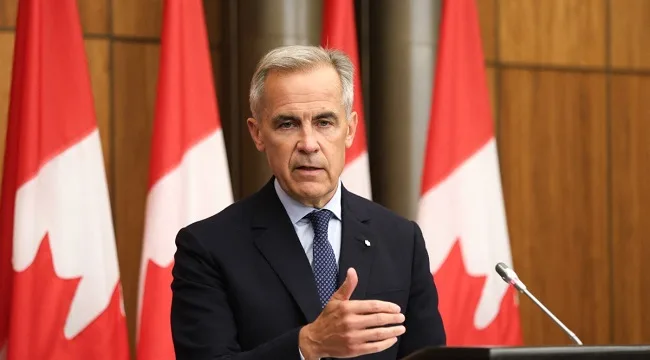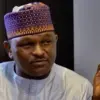Canada plans to formally recognize a Palestinian state at the United Nations General Assembly in September 2025, Prime Minister Mark Carney announced Wednesday, marking a significant policy shift. The decision drew swift condemnation from US President Donald Trump and outright rejection from Israel.
Carney framed the move as essential to preserving the long-held Canadian goal of a two-state solution to the Israeli-Palestinian conflict, warning that hope for such a resolution is “being eroded before our eyes.”
“Canada intends to recognize the State of Palestine at the 80th Session of the United Nations General Assembly in September 2025,” Carney stated.
This announcement positions Canada — a G7 member — as the third major country, following France and the United Kingdom, to signal plans to recognize Palestinian statehood this September.
Highlighting the worsening humanitarian crisis in Gaza, Carney said the suffering of civilians leaves “no room for delay in coordinated international action to support peace.”
Israel condemned Canada’s decision as part of a “distorted campaign of international pressure,” while US President Donald Trump warned that it could jeopardize ongoing trade negotiations with Canada.
“Wow! Canada has just announced that it is backing statehood for Palestine,” Trump wrote on his Truth Social platform. “That will make it very hard for us to make a Trade Deal with them.”
When asked whether Canada might reconsider its position before the UN meeting, Carney said, “there’s a scenario (but) possibly one that I can’t imagine.”
Canada’s recognition is contingent upon the Palestinian Authority’s commitment to “much-needed reforms,” Carney explained, referring to the governing body led by President Mahmoud Abbas, which administers parts of the Israeli-occupied West Bank.
He further emphasized that the plan depends on Abbas’s pledge to hold general elections in 2026, excluding Hamas from participation, and to pursue the demilitarization of a future Palestinian state.
A ‘historic’ step and regional reactions
With this announcement, Canada joins France, whose President Emmanuel Macron also pledged to recognize a Palestinian state at the upcoming UN session, making France the most powerful European nation to take such a step.
The Israeli embassy in Ottawa sharply criticized the move, arguing that “recognizing a Palestinian state in the absence of accountable government, functioning institutions, or benevolent leadership, rewards and legitimizes the monstrous barbarity of Hamas on October 7, 2023.”
Palestinian Authority President Mahmoud Abbas welcomed the announcement, calling it a “historic” decision. France indicated its intention to collaborate with Canada to “revive the prospect of peace in the region.”
Canada’s recognition plan goes further than a recent statement by UK Prime Minister Keir Starmer, who said the UK will formally recognize Palestine in September only if Israel takes “substantive steps,” including agreeing to a ceasefire in Gaza.
Renewed focus on a two-state solution
Carney reaffirmed Canada’s longstanding commitment to a negotiated peace process between Israel and the Palestinian Authority aimed at establishing two states living side by side in peace.
“Regrettably, this approach is no longer tenable,” he said, citing ongoing “Hamas terrorism” and the group’s “longstanding violent rejection of Israel’s right to exist.”
He also blamed the erosion of the peace process on continued Israeli settlement expansion in the West Bank and East Jerusalem.
Carney warned that a two-state solution is becoming increasingly elusive, pointing to a recent vote in Israel’s parliament “calling for the annexation of the West Bank” and Israel’s “ongoing failure” to prevent a humanitarian catastrophe in Gaza.
Framing the recognition as a measure to safeguard Israel’s future, the prime minister said, “Any path to lasting peace for Israel also requires a viable and stable Palestinian state, and one that recognizes Israel’s inalienable right to security and peace.”
AFP


